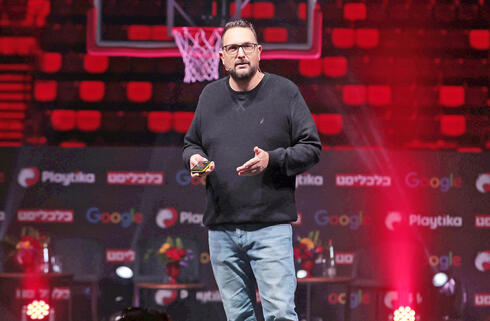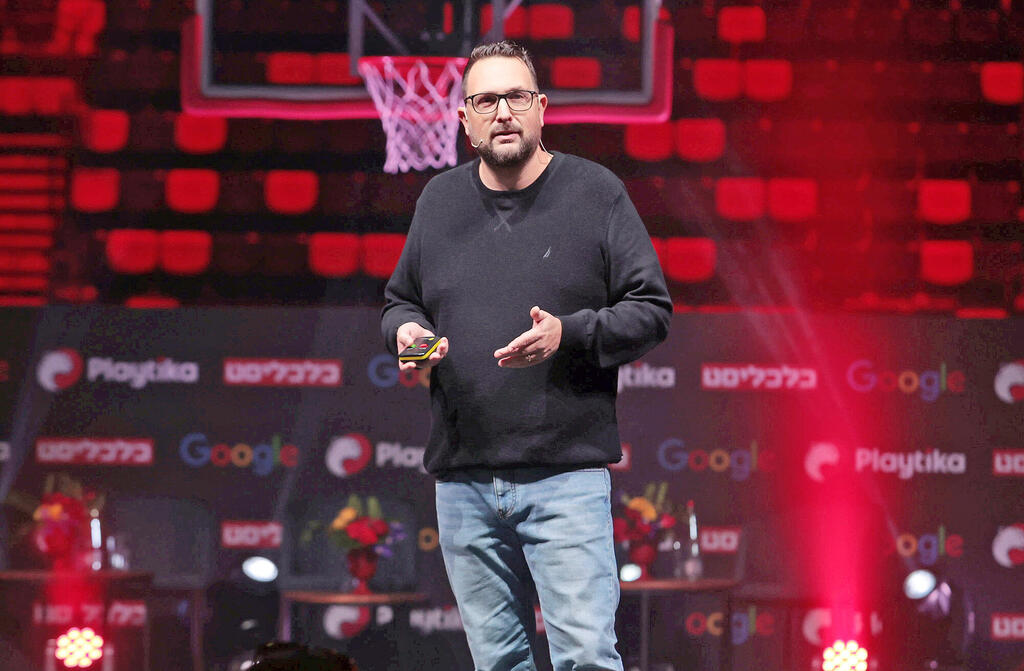
Playtika CTO: "The next big thing is synergy between humans and artificial intelligence"
"As soon as we achieved AI capabilities, we added a concept called Human-Machine Team,” said Playtika CTO Erez Rachmil. “It’s a team of people and machines that have three vectors between them - the human, the machine and the relationship between them"
"The next big thing in the digital world is synergy between people and artificial intelligence, the creation of human and machine teams," said Erez Rachmil, CTO of Playtika, speaking on Monday at the Calcalist gaming conference in partnership with Google and Playtika. "We are one of the largest mobile gaming companies in the world. To build a large and serious gaming business, the core games alone are not enough, they must include such areas as Live Ops, game economics, monetization, analytics and data. To deal with the scale and the level of complexity, the growth strategy is an enhanced machine learning technology. This technology allows us to make smart optimizations based on artificial intelligence and reduce the amount of manual work and the depth of technological knowledge that is required."
Rachnil noted that over recent years the company has invested many resources in an artificial intelligence strategy, in building NLP engines, establishing two algorithmic laboratories and in an integrative machine learning platform for the company's games. "We look at the topic of AI like a startup within Playtika. As soon as we have these capabilities in the field of AI, we added to it a concept called Human-Machine Team, a team of people and machines that have three vectors between them - the person, the machine and the relationships and dependencies between them,” he said.
Playtika established several elements from this concept. "We are a data oriented company, we use data to make decisions," noted Rachmil. “The second is ‘machine learning first’. If we have problems that need to be solved today we will try to solve them using algorithmic solutions first. And the third is ‘Democratization of AI’ - making artificial intelligence technologies accessible to businesses without the need for data scientists or data engineers, enabling business experts to use, manipulate and even change things about AI themselves."
Rachmil explained how this looks like at Playtika. “Before the digital era, a studio worker at Playtika needed a very deep knowledge of defining and finding personalizations in the game. They used a lot of manual work and many systems, looking for problems or answers to problems in two dimensions and having to look at a lot of reports and proposals and based on a lot of intuition. In the digital studio world, they receive tools based on artificial intelligence in order to produce personalizations. The system itself floods them with insights and suggestions for actions, and instead of taking days or weeks, it takes a few minutes."
The most important element in human-machine teams is the human. "The role of the person is changing, it is strengthened in a different way. In the past, for example, in order to close a business process, you had to work with several people with different areas of expertise. Today, the process can be managed from end to end. The person can focus on insights on a daily basis and not work sporadically. The person is the one who knows the business context and understands if what the models predict and offer is really the right thing. Another role of the person is to find new opportunities and solve problems that didn't even exist before," he said.















